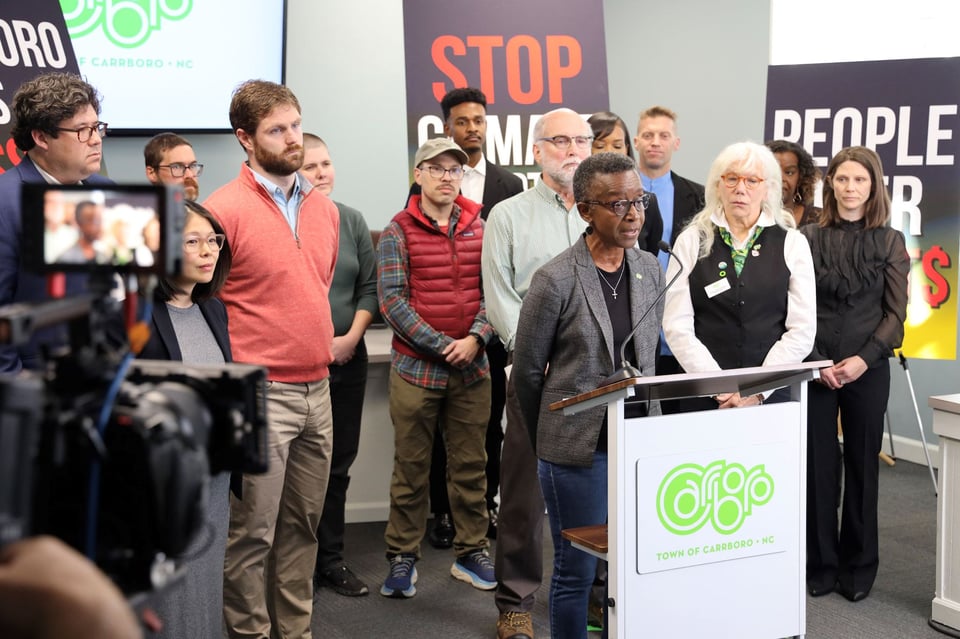What cities & states can do now on climate
There's no shortage of efforts in the works

Welcome back to The Planet You Save May Be Your Own, a newsletter on local & state climate action.
I’m Taylor Kate Brown and this newsletter grows by word-of-mouth. Someone share or forward this edition with you? Sign up here. You can also read and share this edition online.

The city of Carrboro, North Carolina is mad. Why? In a new lawsuit they say they’ve been a “victim of the climate deception” and are suing a company for spreading false information about the impacts of burning fossil fuels. But Carrboro’s town council isn’t suing Exxon or BP, or any of the big oil companies. They’re suing Duke Energy, the town’s utility company.
It’s the first time an electric utility has been sued for climate deception, Floodlight’s Mario Alejandro Ariza reports, but Carrboro is up against a not particularly good track record for these kinds of cases.
Of course climate action is not only — or even mostly — lawsuits. Carrboro’s own climate plan calls for a 80% reduction of per capita greenhouse gas emissions by 2030. (If you are interested in finding and assessing your own city’s climate plan, I have a guide for that).
There’s also a host of ideas in this story by Kendra Pierre-Louis (gift link), including steering more funding to transit, and passing local laws to make buildings more efficient and less reliant on fossil fuels. What all these have in common are support for policies from different parts of a broad coalition and active, attentive and vocal residents.
Reading
A rare UK story, in which the country is considering free electricity for those nearest to transmission lines amid a build out to bring more north sea wind power into their country.
I’m stumped too. Any good ideas as why DC’s compost buckets are getting stolen at “alarming” rates?
Much ink has been spilled over how wind and solar can’t offer 24/7 power but very little on how much solar power we produce right now that we are actually NOT using. The LA Times writes about this problem (which is particularly strong in California)and some potential solutions. While Grist and Washington Post offer some very different kinds of batteries to soak up all that midday sun for the long-term.
NYC’s comptroller wants to exclude midstream and downstream fossil fuel businesses from city pension funds. Midstream (basically processing, storage and distribution of fossil fuels) is a blind spot for many banks’ promises on climate financing, but this particular proposal includes private investments — which as I reported a few years ago, were the hardest part of Maine’s divestment plan from fossil investments.
Add a comment: